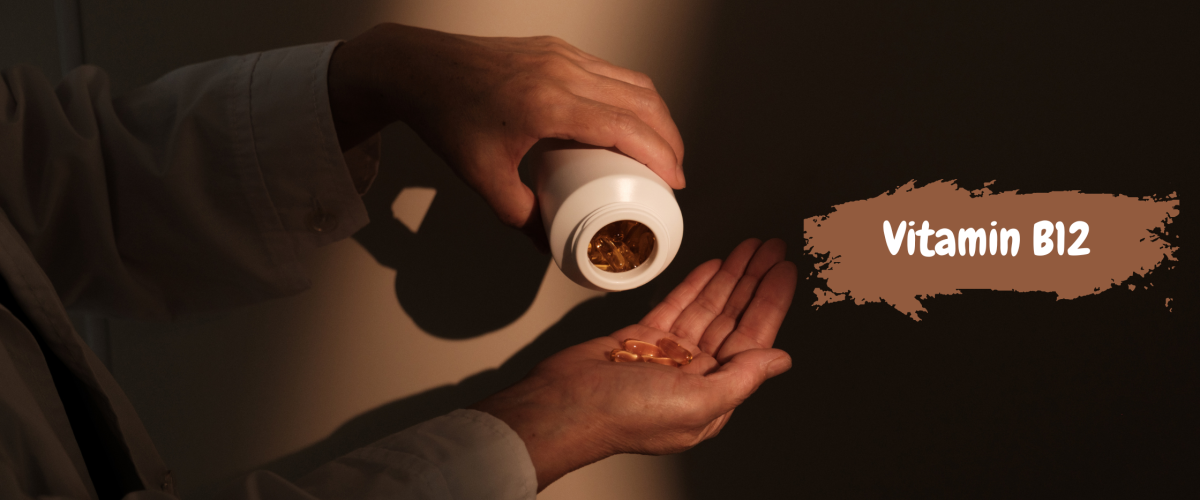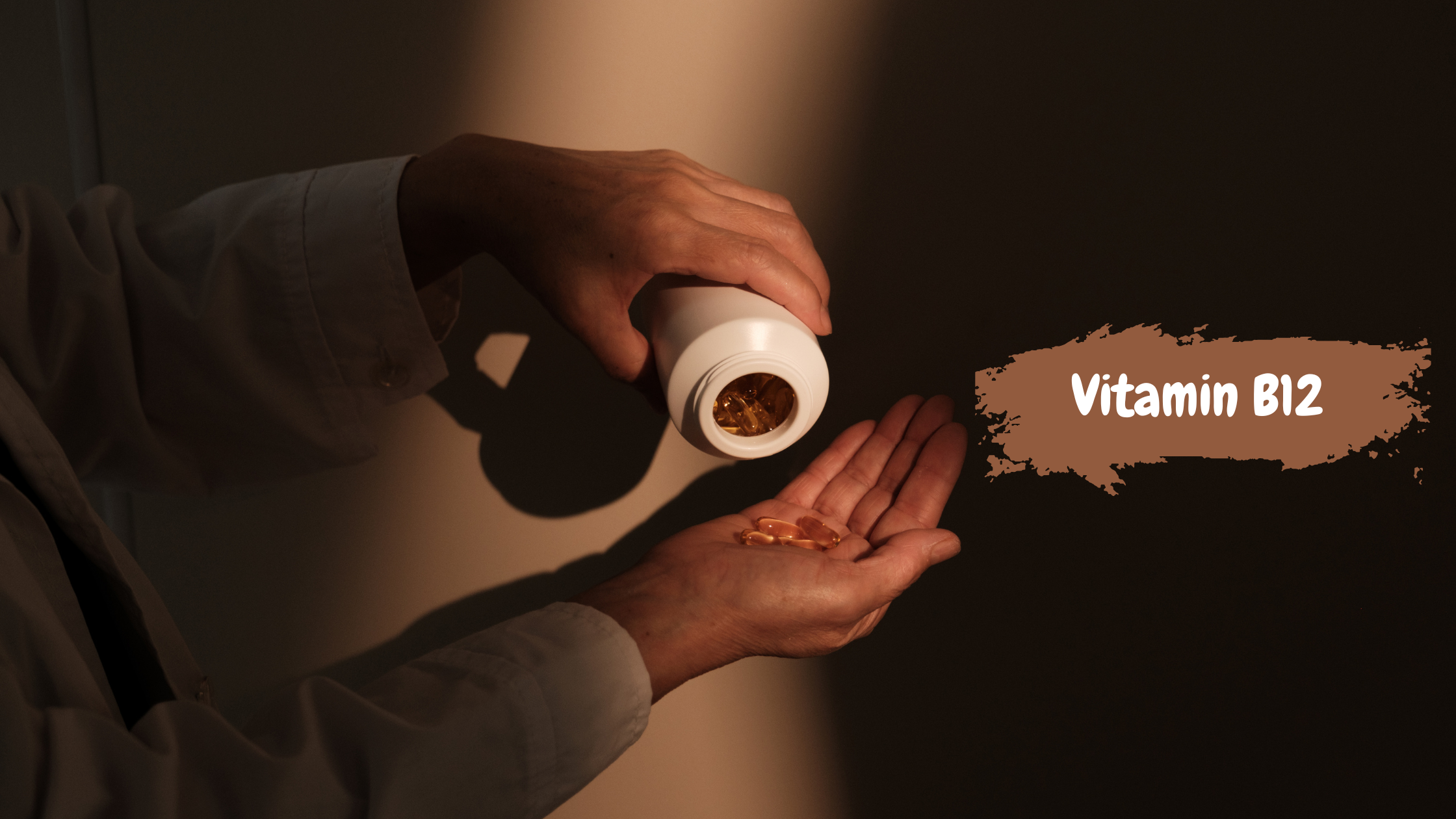
What Happens When You Take Vitamin B12?
Vitamin B12 is a crucial nutrient that your body requires to work properly. It helps in making your body’s genetic material and keeping your organs and nerves healthy.
Vitamin B12 is mainly obtained from animal-derived food sources. However, with more and more people adopting plant-based diets the world over, cases of vitamin B12 deficiency are also rising.
This article answers some very important questions about why people get deficient in vitamin B12 and why should you pay attention to this important nutrient.
Why Do People Get Vitamin B12 Deficiency?
There are numerous food sources abundant in vitamin B12. Organ meats such as liver and lamb kidneys are especially rich in this vitamin. For instance, a 100-gram serving of lamb liver offers almost 3571% of the recommended daily value of vitamin B12.
Other good sources of this nutrient include clams, sardines, tuna, fortified nutritional yeast, eggs, and milk & dairy products.
Despite the easy availability of food sources, vitamin B12 deficiency is a common phenomenon. According to a study by the National Institutes of Health (Office of Dietary Supplements), in the United States and the United Kingdom, approximately 6% of people younger than 60 years are deficient in vitamin B12. Among people over the age of 60, this rate increases to almost 20 %.
Here are some factors that increase your risk of vitamin B12 deficiency:
Dietary Intake
The main source of vitamin B12 is animal proteins. People who follow vegan or plant-based diets tend to miss out on these food sources and may develop a deficiency of this critical nutrient.
Pernicious Anemia
One of the most common causes of low levels of B12 in your body is pernicious anaemia. This condition is most common in women above 60 years or those with a family history. It is also known to occur in people with other autoimmune conditions like vitiligo or Addison’s disease.
This autoimmune condition affects your stomach and lowers your body’s natural defence system. Not just this, it also attacks your body’s healthier cells.
These cells may lead to lower levels of the intrinsic factor, which in turn doesn’t let your body absorb vitamin B12.
Low Dietary Intake
At times, people who consume animal proteins and dairy products also experience a deficiency of this vitamin. One of the major reasons behind this is that their diet doesn’t meet the recommended daily values of vitamin B12.
Gastrointestinal Diseases
One of the most common reasons for vitamin B12 deficiency is untreated gastrointestinal problems. Gastritis is one such condition that leads to low levels of vitamin B12 in your body. This condition lowers the levels of hydrochloric acid in your stomach, which eventually interferes with the absorption of this vitamin in your body.
Other conditions affecting the digestive system that prevents your body from completely absorbing vitamin B12 include Celiac disease and Crohn’s disease. People who have undergone stomach surgeries, especially gastric bypass surgery for weight loss, can also experience low levels of vitamin B12.
Lack of Intrinsic Factor
Intrinsic factor is a naturally-occurring substance in your stomach lining that aids in the proper absorption of vitamin B12 in your body. There are times when a person may lack this intrinsic factor. Reasons for this could be genetic or reduction in it with age.
Another factor that contributes to lower levels of intrinsic factor includes autoimmune diseases. These diseases cause the stomach lining to get atrophied or wasted away leading to poor levels of vitamin B12 in the body.
Certain Medications
Long-term dependence on certain medications may increase your risk of vitamin B12 deficiency. For instance, medicines used to treat heartburn or GERD (gastroesophageal reflux disease) work by regulating and suppressing the levels of stomach acids. Lower levels of stomach acids may interfere with B12 absorption. Two of the most common medicines that interfere with vitamin B12 absorption include H-2 receptor blockers and proton pump inhibitors.
Other drugs that may lead to low levels of vitamin B12 in your body include those used to manage diabetes or oral birth control pills.
Drinking Alcohol
There is a closer connection between alcohol consumption and your vitamin B12 levels than you think. Regularly drinking alcohol irritates the mucosal lining of your stomach. This may lead to gastritis and eventual low levels of the vitamin.
Not just this, chronic alcoholism also doesn’t let your body fully absorb nutrients by interfering with their storage and transport.
Besides the above-mentioned situations, there are some other categories of people also who are at risk of vitamin B12 deficiency. These include:
- Pregnant or breastfeeding women.
- People over the age of sixty.
How Do You Know If You Are Deficient in Vitamin B12?
Did you know that your body stores almost 1,000 to 2,000 times of vitamin B12as you would consume in a day? That is one of the main reasons why the symptoms of vitamin B12 deficiency take years to show. And when they do, they are often irreversible.
Here are some signs and symptoms of low levels of this vitamin to look out for:
Fatigue
Your body needs healthy red blood cells and oxygen to function optimally. Inadequate levels of vitamin B12 reduce the formation of red blood cells in your body and eventually the delivery of oxygen to various organs and tissues.
Due to this, you tend to feel weak and tired most of the time.
Frequent Headaches
Headaches are one of the most common symptoms of vitamin B12 deficiency. When you have low levels of this vitamin, your homocysteine levels increase. This results in an increased risk of neurovascular diseases, especially migraine.
This deficiency may also lead to chronic head pains. People with optimum levels of vitamin B12 are less likely to experience head pains.
Stomach Problems
When you have fewer red blood cells and not enough oxygen to reach your gut, it may lead to several gastrointestinal symptoms. Besides making you feel nauseous, low levels of vitamin B12 may also cause other severe symptoms. These may include diarrhoea, vomiting, constipation, and bloat.
Poor Appetite
In cases of unchecked vitamin B12 deficiency-related gastrointestinal symptoms, some people may experience loss of appetite, which may eventually lead to weight loss. Furthermore, since poor levels of this vitamin in your body also lead to fatigue and weakness, it makes your exercise and physical activity less effective. It also doesn’t allow your body to absorb and retain nutrients properly, thereby leading to weight loss.
Mental Impairment
Poor levels of vitamin B12 are directly linked to distorted functioning of the central nervous system. It may leave you feeling confused and foggy. It may also lead to problems concentrating and finishing simple tasks.
In the long run, this may lead to poor productivity and interpersonal relationships and a deterioration in the quality of life.
Pale Skin
Since low levels of vitamin B12 lead to anaemia, it causes yellow or pale-looking skin. Not just your skin, low levels of B12 also affect your eyes and may make them take on a yellowish hue.
Depression and Anxiety
Low levels of vitamin B12 lead to higher levels of an amino acid known as homocysteine. This sulphur-containing compound is linked to an increase in oxidative stress. This may lead to the development of neurological conditions such as anxiety and depression. When left unchecked, this may worsen your condition and lead to psychosis.
Paresthesia
This is the condition that leads to a sensation of pins and needles in one’s hands and feet. Several people with unregulated levels of vitamin B12 have complained of this sensation along with numbness.
How To Boost Your Vitamin B12 Levels?
For your body to function properly including your DNA formation, cognitive functioning, energy, etc., an average adult needs around 2.4 micrograms of this vitamin each day. If a woman is pregnant, her vitamin B12 needs would go up to 2.6 micrograms every day. Furthermore, if you breastfeed, this requirement increases to 2.8 micrograms every year.
However, since this nutrient cannot be synthesized in the body, it needs to be obtained from external food sources.
Vitamin B12 is naturally present in animal food sources. These include dairy, eggs, fish, meat, poultry, etc. Other sources of vitamin B12 include breakfast cereal fortified with this vitamin and nutritional yeast.
If you are a non-vegetarian, you may still get adequate levels of B12 from your diet. However, if you are a vegan or follow a plant-based diet, you may need vitamin B12 supplementation, especially supplements that are made using plant-based sources of vitamin B12.
One such supplement is plant-based vitamin B12 (Cobalamin). It is created with 100% natural and organic ingredients such as wheatgrass, amla, beetroot, and moringa.
The Bottom Line
Vitamin B12 is responsible for performing several critical functions in your body. However, at times the deficiency of this vitamin is misdiagnosed because its symptoms often mimic other conditions. If you experience any symptoms of vitamin B12 deficiency, you must immediately consult your physician for advice.



